Photos: Algeria Celebrates 60 Years Since Winning Independence From France
23:38 GMT 06.07.2022 (Updated: 19:28 GMT 03.11.2022)
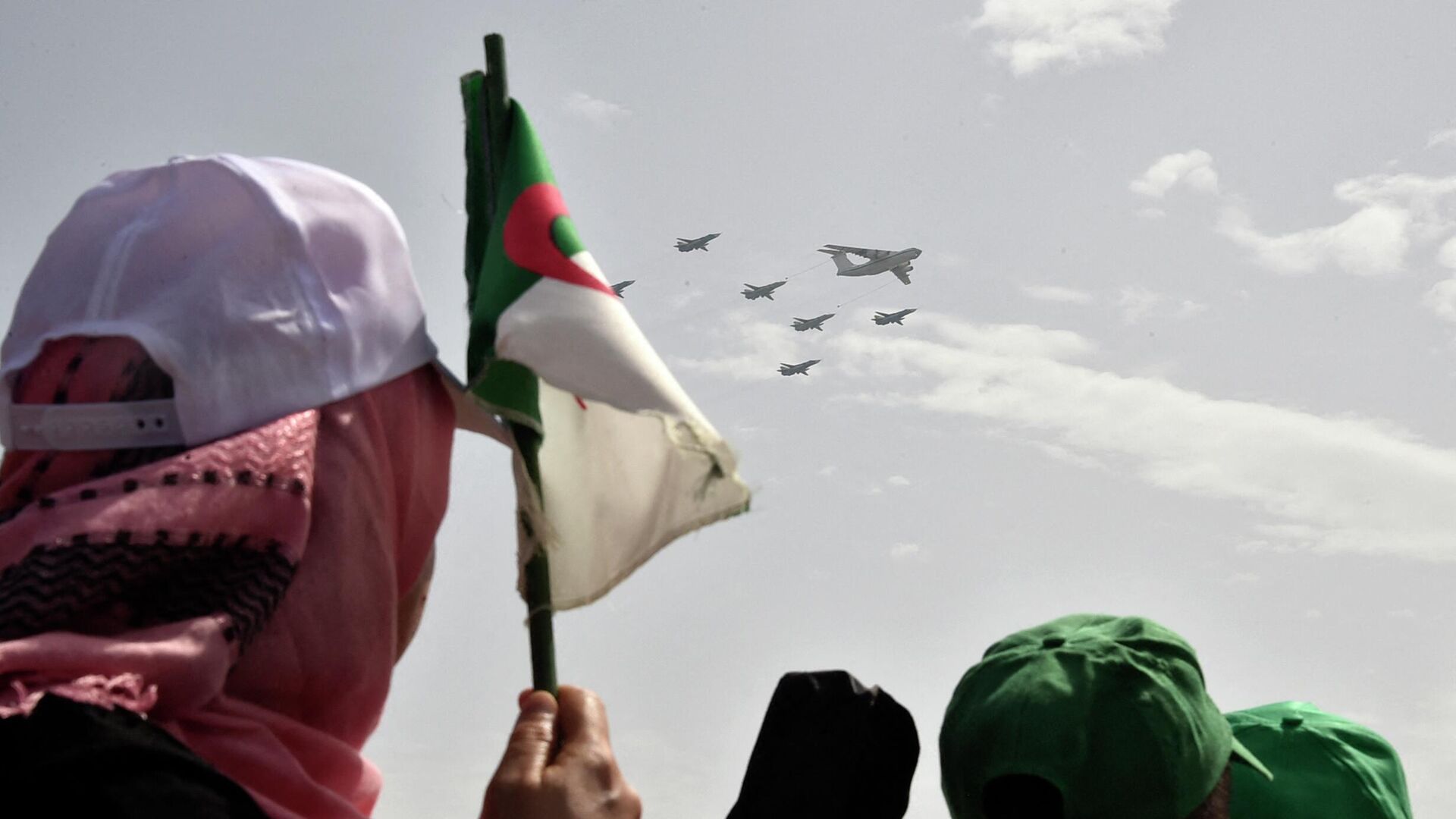
© AFP 2023 / RYAD KRAMDI
Subscribe
An estimated 1.5 million Algerians were killed by France in the eight-year war of independence, but even though the 1962 Evian Accords gave Algeria independence, France retained a powerful hold on Algeria via trade and continued to test nuclear weapons in the Algerian Sahara.
On Tuesday, Algeria celebrated 60 years of independence from France, holding a grand military parade in the capital of Algiers. The parade, presided over by Algerian President Abdelmadjid Tebboune, included military aircraft, tanks, and warships.
Tebboune said the celebrations "bear the meanings of loyalty to the martyrs, and to the eternal message of November" 1954, when the great uprising against French rule began.
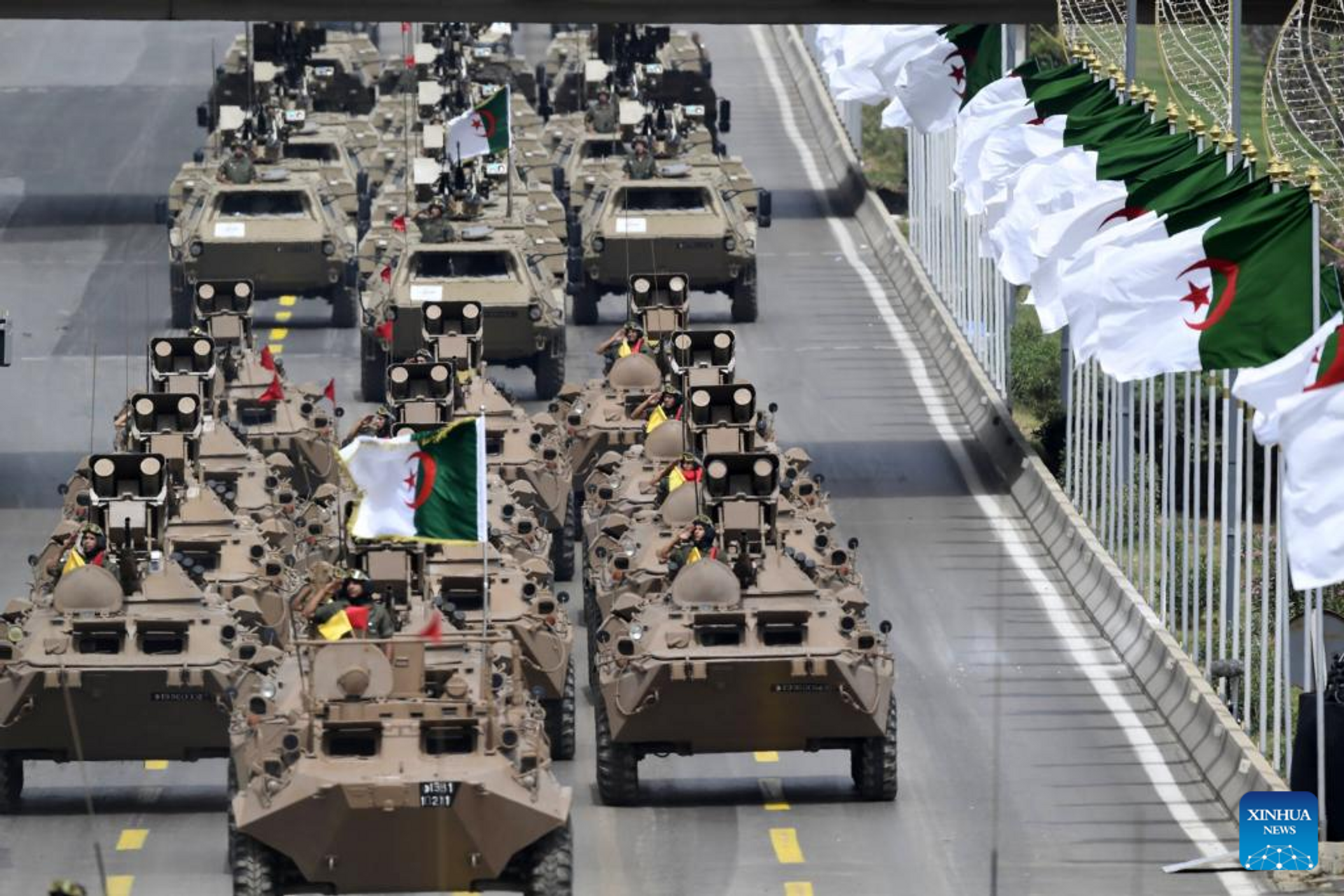
Military vehicles are driven during a military parade to celebrate the 60th anniversary of Algeria's independence in Algiers, capital of Algeria, on July 5, 2022. Algeria on Tuesday held a grand military parade to celebrate the 60th anniversary of its independence from French colonialism, with the attendance of senior local and foreign officials
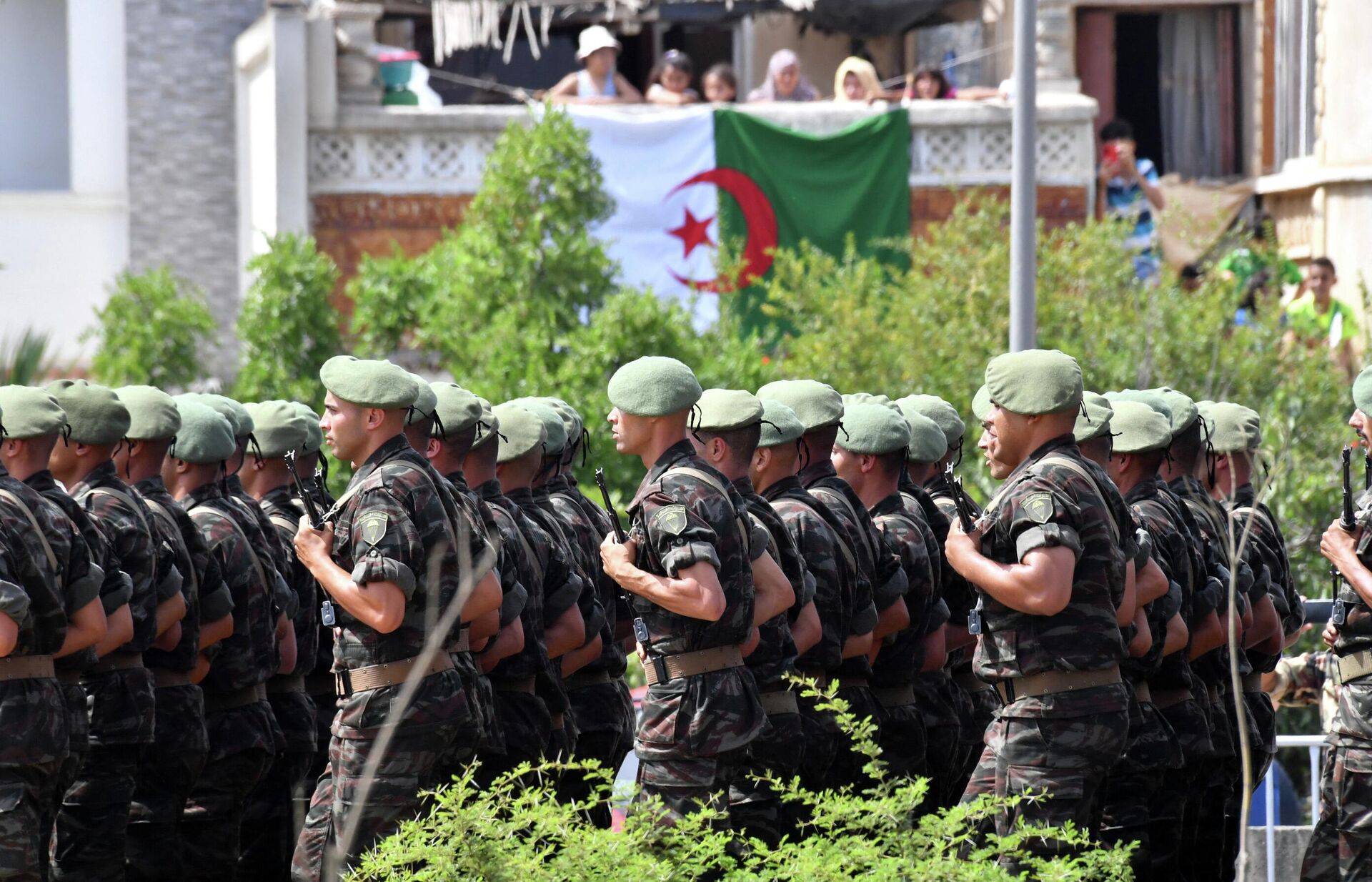
Algerian soldiers parade down a street in the capital Algiers on July 5, 2022, as the country celebrates the 60th anniversary of its independence.
© AFP 2023 / RYAD KRAMDI
On July 5, 1962, Algeria stood at the end of a long and bloody war against French colonialism, which had ruled the country for 132 years. The war that led to Algeria’s independence was launched on All Saints Day in 1954, although there had always been resistance movements fighting for freedom. The call for revolution came just months after the humiliating defeat of the French Foreign Legion at the Battle of Dien Bien Phu that spelled the end of French rule in Vietnam and Laos.
However, the Algerian war was more personal for the French, as Algeria was a French department, not formally a colony, and was home to more than a million pieds noirs, or French settlers, who formed a separate caste of Algerian society above the Arabs and Imazighen.
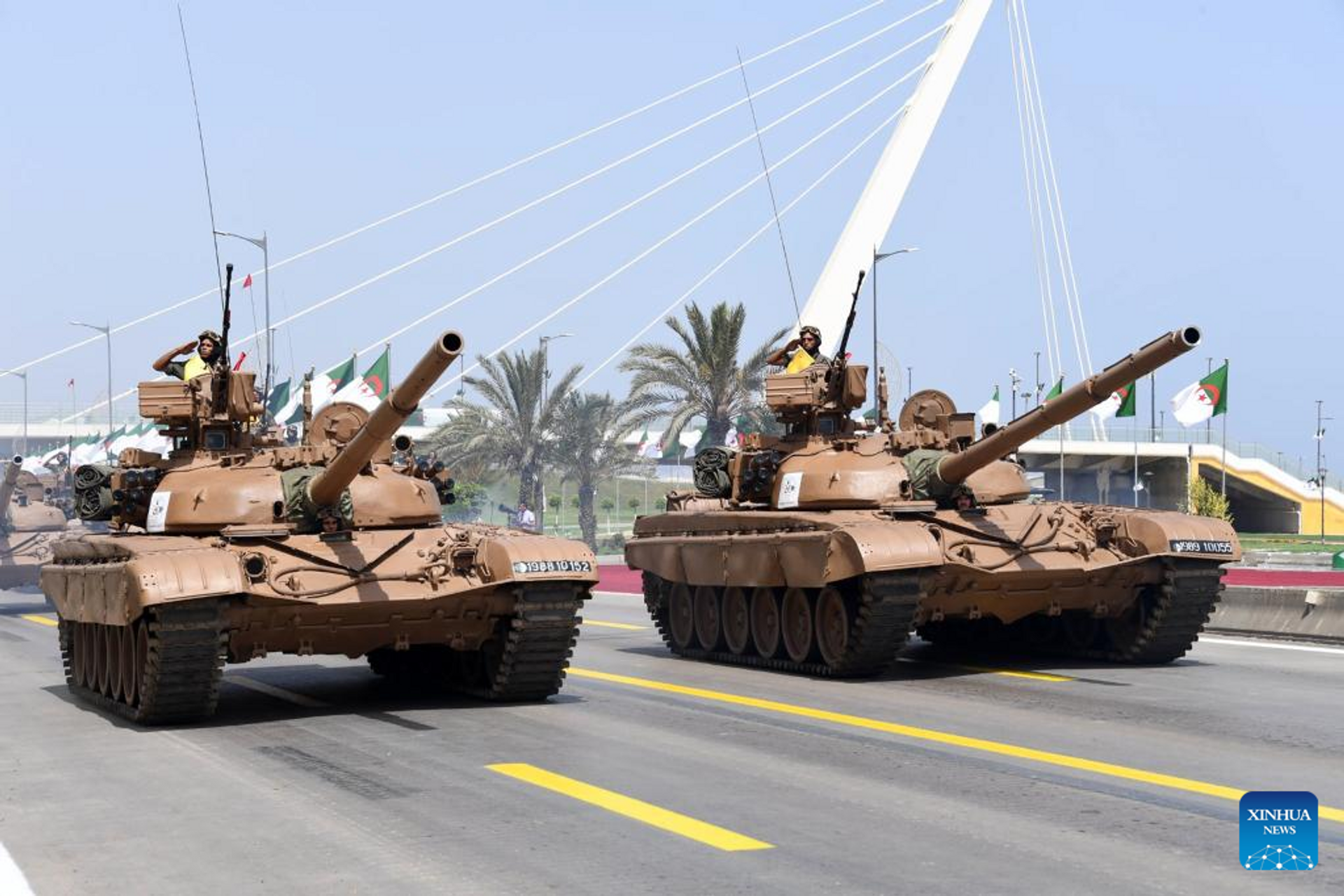
Armored vehicles are driven during a military parade to celebrate the 60th anniversary of Algeria's independence in Algiers, capital of Algeria, on July 5, 2022. Algeria on Tuesday held a grand military parade to celebrate the 60th anniversary of its independence from French colonialism, with the attendance of senior local and foreign officials.
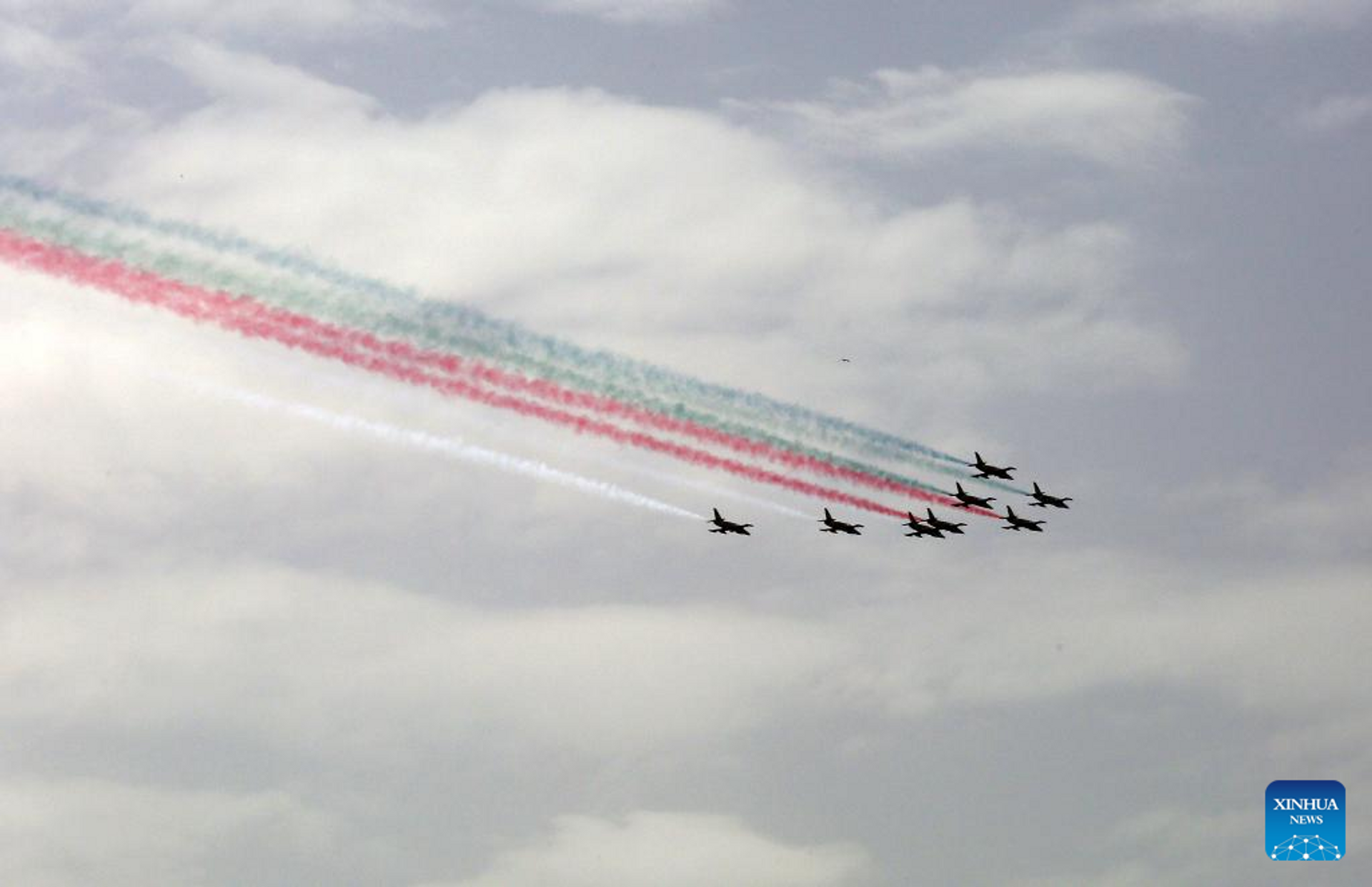
Aircraft are seen during a military parade to celebrate the 60th anniversary of Algeria's independence in Algiers, capital of Algeria, on July 5, 2022. Algeria on Tuesday held a grand military parade to celebrate the 60th anniversary of its independence from French colonialism, with the attendance of senior local and foreign officials.
© Xinhua
The French military waged a brutal war that included systematic torture against the Algerian revolutionaries, who responded with a guerrilla campaign punctuated with urban terrorist bombings. The formal French troops were complemented by irregular gangs of pieds noirs, who waged their own terror campaign against Arab towns. As the war raged on, desperate French military officers overthrew the government in Paris and abolished the Fourth Republic, creating a new constitution with a stronger executive and putting World War 2 military hero Charles de Gaulle in charge of it.
Still, French rule was not to last. The Algerian revolutionaries linked up with other peoples colonized by France across Africa, forming a network that jointly resisted French rule. Two years after they forced Paris into a humiliating referendum in which nearly every colony voted for independence, the Evian Accords in March 1962 granted freedom to Algeria beginning on July 5.
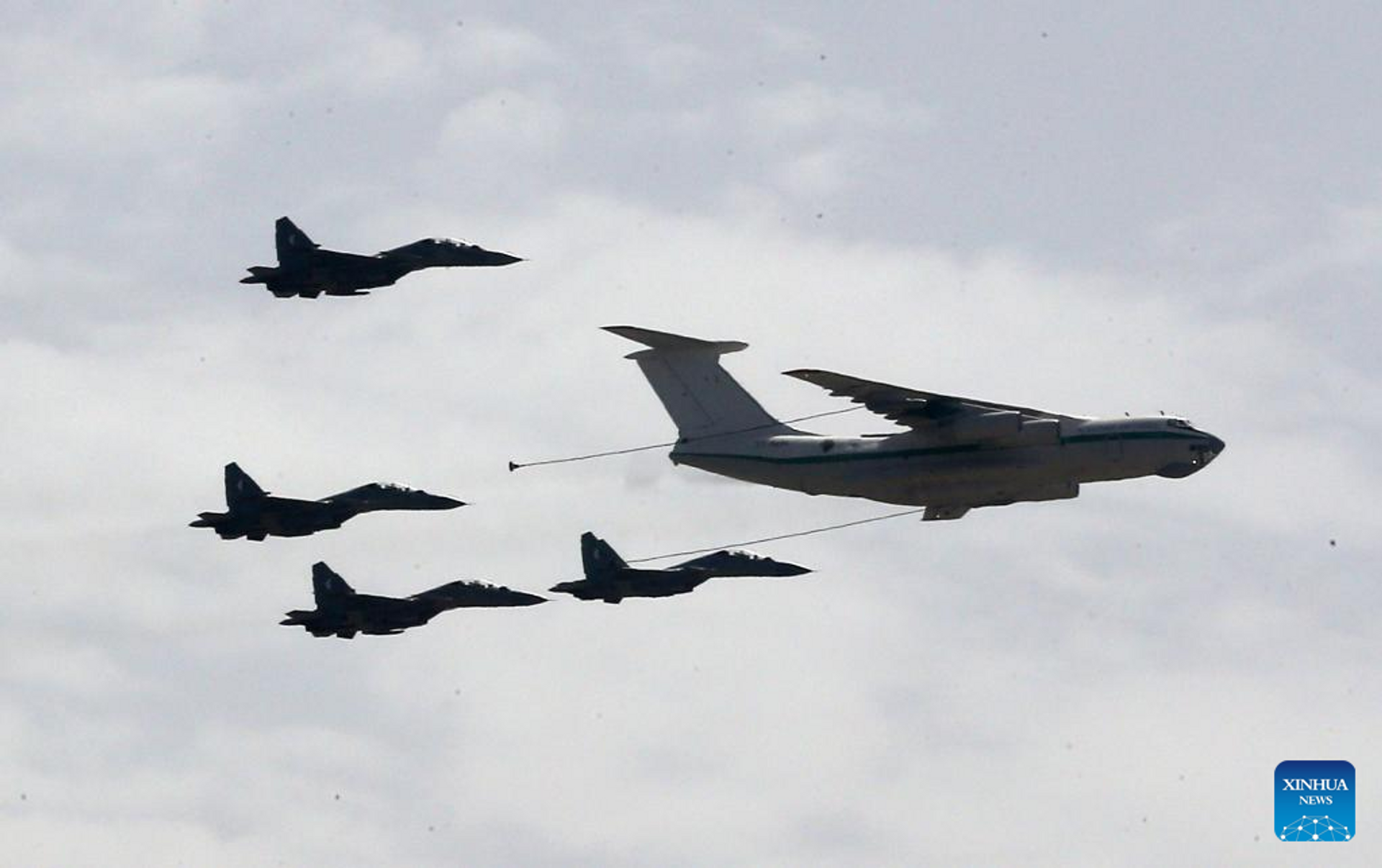
Aircraft are seen during a military parade to celebrate the 60th anniversary of Algeria's independence in Algiers, capital of Algeria, on July 5, 2022. Algeria on Tuesday held a grand military parade to celebrate the 60th anniversary of its independence from French colonialism, with the attendance of senior local and foreign officials.
An estimated 1.5 million Algerians were killed by French forces during the conflict. Last year, French President Emmanuel Macron said there would be "no repentance nor apologies" for French rule in Algeria, but that he would support a “memories and truth” commission to “take a lucid look at the wounds of the past” and find a path to reconciliation.
Macron has made similar half-gestures toward reconciliation with other African nations, such as Rwanda, which was not a French colony but in which France was strongly involved in 1994, when the genocide of Tutsis and Twa by the Hutu Power government began.
